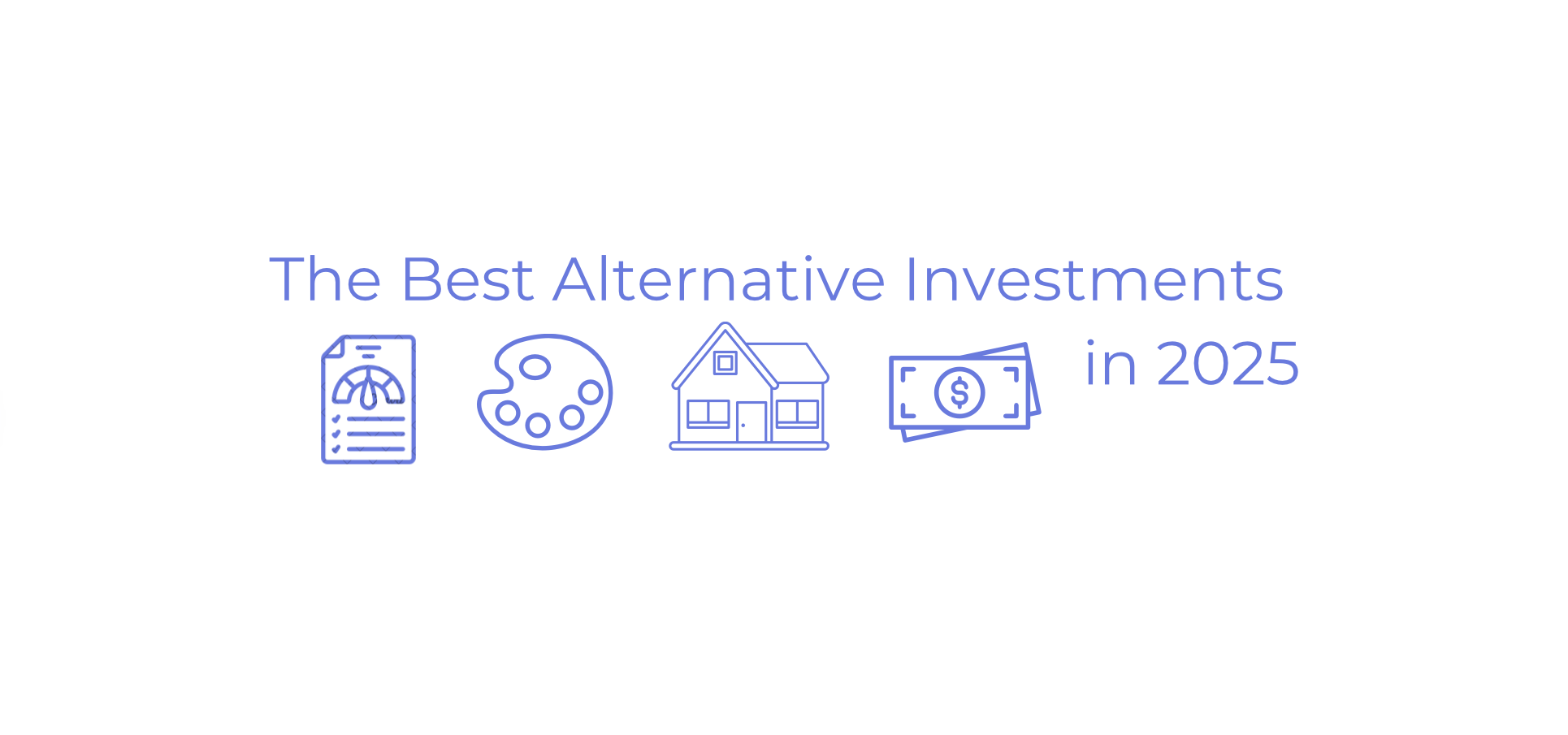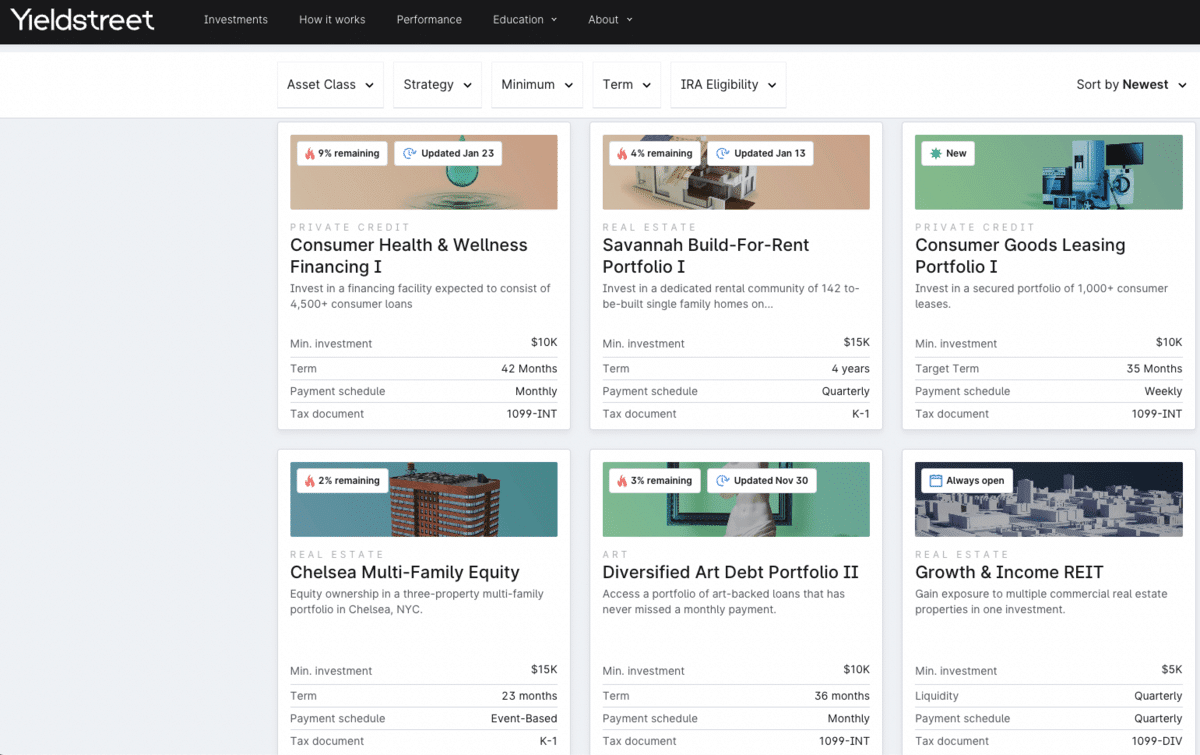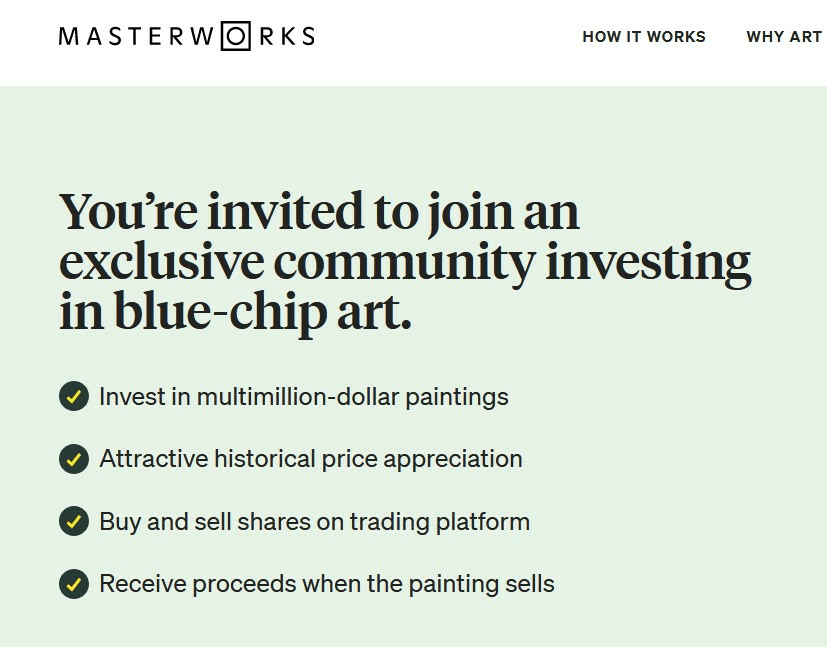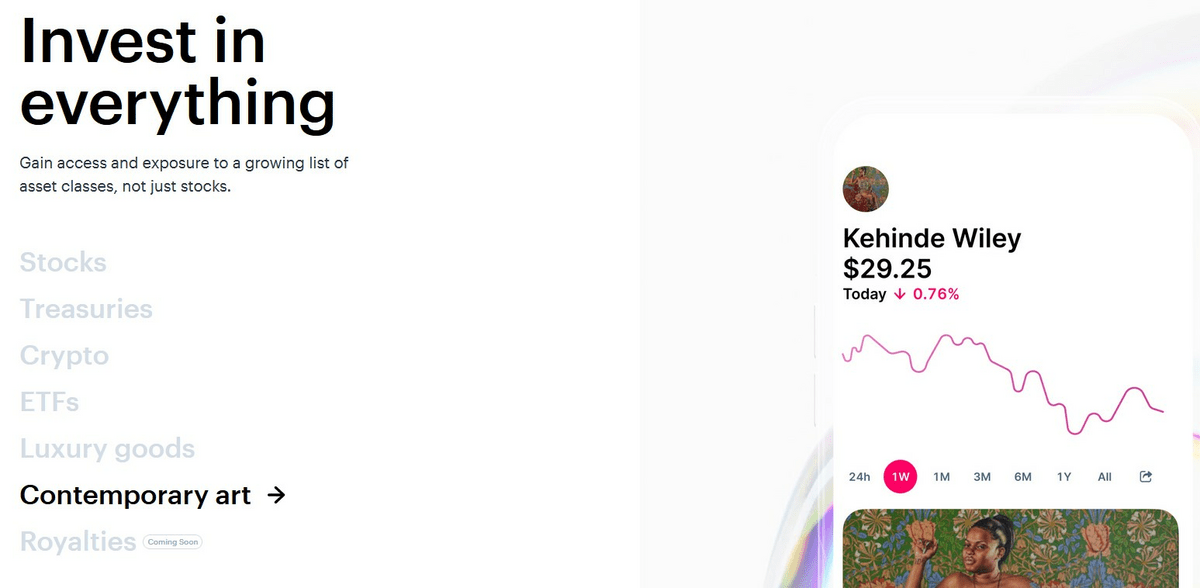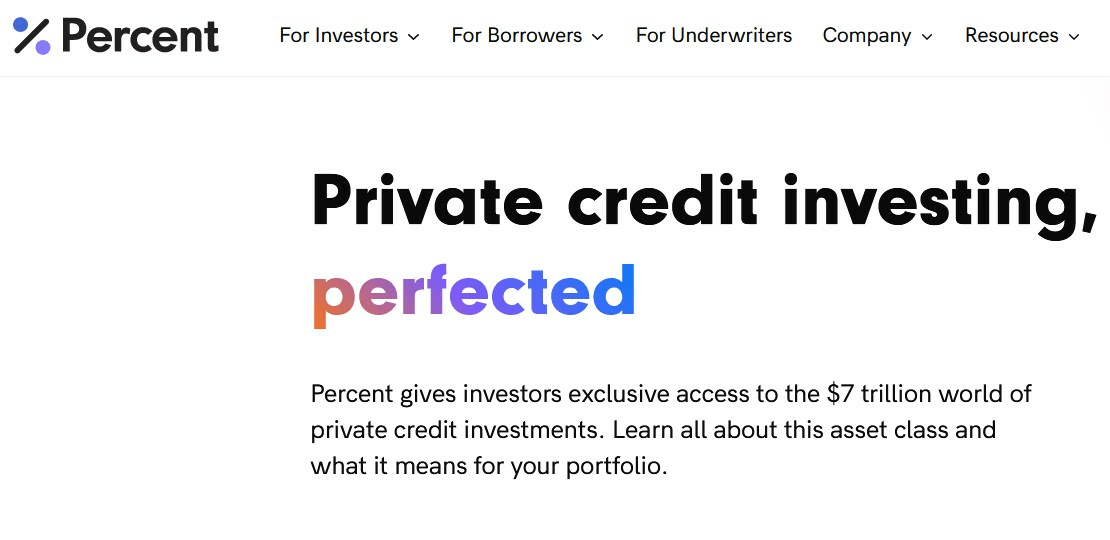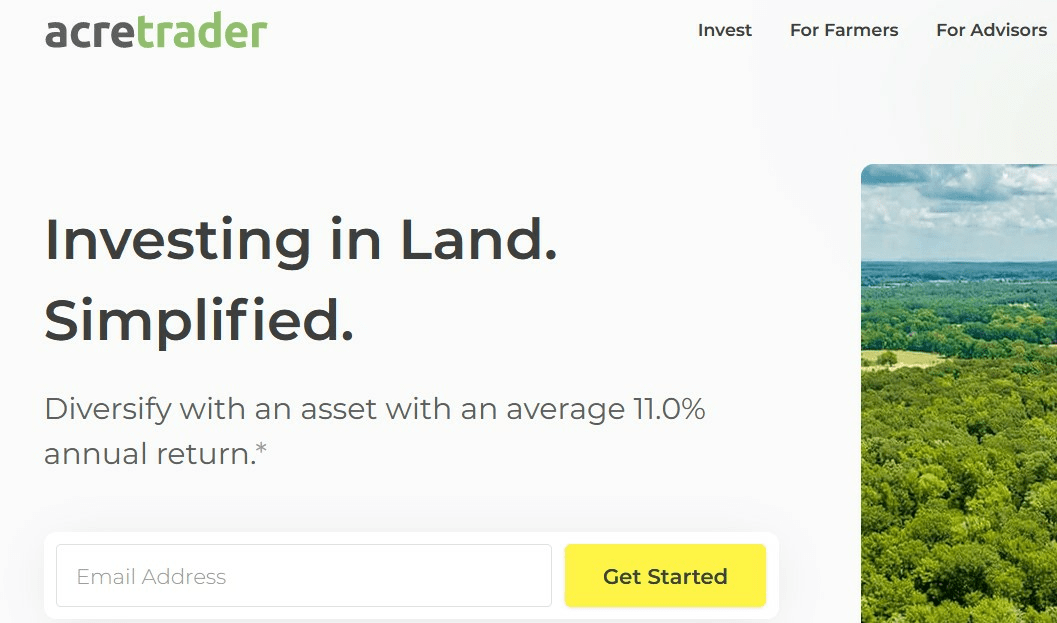Looking to diversify your investment portfolio outside of traditional investments like stocks, bonds, and mutual funds and into new investment opportunities?
The list of alternative investments is eclectic — property, art, precious metals, collectibles, and other alternative investments … But which of these alternative investment options is best for you?
I’m here to help you figure it out. In this article, I’ll introduce you to some of the best alternative investments out there. We’ll start with the basics — What are alternative assets, anyway? Why do institutional investors and hedge funds love them so much? — and continue to the benefits and drawbacks of several types of alternative investments. Then, we’ll deconstruct the alternative investment industry and guide you toward the highest-quality platforms.
32% returns…
That’s what investors got when fine-art crowdfunding platform Masterworks sold a million-dollar Banksy piece in 2020.
(Masterworks has also recently delivered 14%, 17%, and 21% net annualized returns to investors.)
Art has outpaced the S&P by leaps and bounds for the past 20+ years. And the experts at Masterworks know what they’re doing. The platform has an extremely selective vetting process for the artwork it selects, accepting less than 3% of the artworks analyzed.
Plus, if you’re looking to diversify, art has one of the lowest correlations with equities of any asset class.
While many investors don’t have the funds to purchase fine art outright, Masterworks provides a fractional share solution that lets everyday investors gain exposure to this exciting and previously hard-to-access asset class.
Ready to explore? WSZ readers can skip the waitlist with this link.
The 11 Best Alternative Investments in 2025:
If you’re interested in taking a detour from traditional investments and exploring alternative assets, it’s crucial to educate yourself on the different options. Here, I profile some of the top platforms and alternative assets out there:
At-a-Glance: The Best Alternative Investments Platforms 2025
- For real estate alternative assets: Fundrise and Yieldstreet
- For art: Masterworks
- For collectibles: Public
- For private companies: Hiive
- For venture capital: Yieldstreet
- For private credit blended notes: Percent
- For farmland: AcreTrader
- For cryptocurrency: Bitcoin IRA and eToro*
- For P2P lending: LendingClub
- For commodities ETFs: eToro*
eToro securities trading is offered by eToro USA Securities, Inc. (“the BD”), member of FINRA and SIPC. Cryptocurrency is offered by eToro USA LLC (“the MSB”) (NMLS: 1769299) and is not FDIC or SIPC insured. Investing involves risk, and content is provided for educational purposes only, does not imply a recommendation, and is not a guarantee of future performance. https://www.wallstreetzen.com is not an affiliate and may be compensated if you access certain products or services offered by the MSB and/or the BD.
Note: We earn a commission for this endorsement of Fundrise.
1. Real Estate
Did you know that 40% of an average millionaire’s assets consist of real estate?
Here’s one of the most traditional investments out there — that also happens to be an alternative asset.
But these high-yield alternative investments aren’t just for millionaires. Investing in rental properties is one of the best alternative investment ideas for investors of all types.
Real estate is one of the best alternative investments because it tends to appreciate in value over time:
- Since 1991, the average annual home price increase has been 4.3% (according to the FHFA).
- Since 2000, the average rate has been 4.7%
Unfortunately, property values have appreciated so much that many investors today find it difficult to buy property outright. However, there is an alternative to buying traditional real estate investment trusts.
That’s where Yieldstreet comes in. It’s one of the best platforms for real estate investing — and alternative investments, period.
With Yieldstreet, investors can invest in art, commercial loans, and other products that were previously only available to institutional investors.
With these private investments, you gain access to markets that have historically outperformed the stock market during downturns…
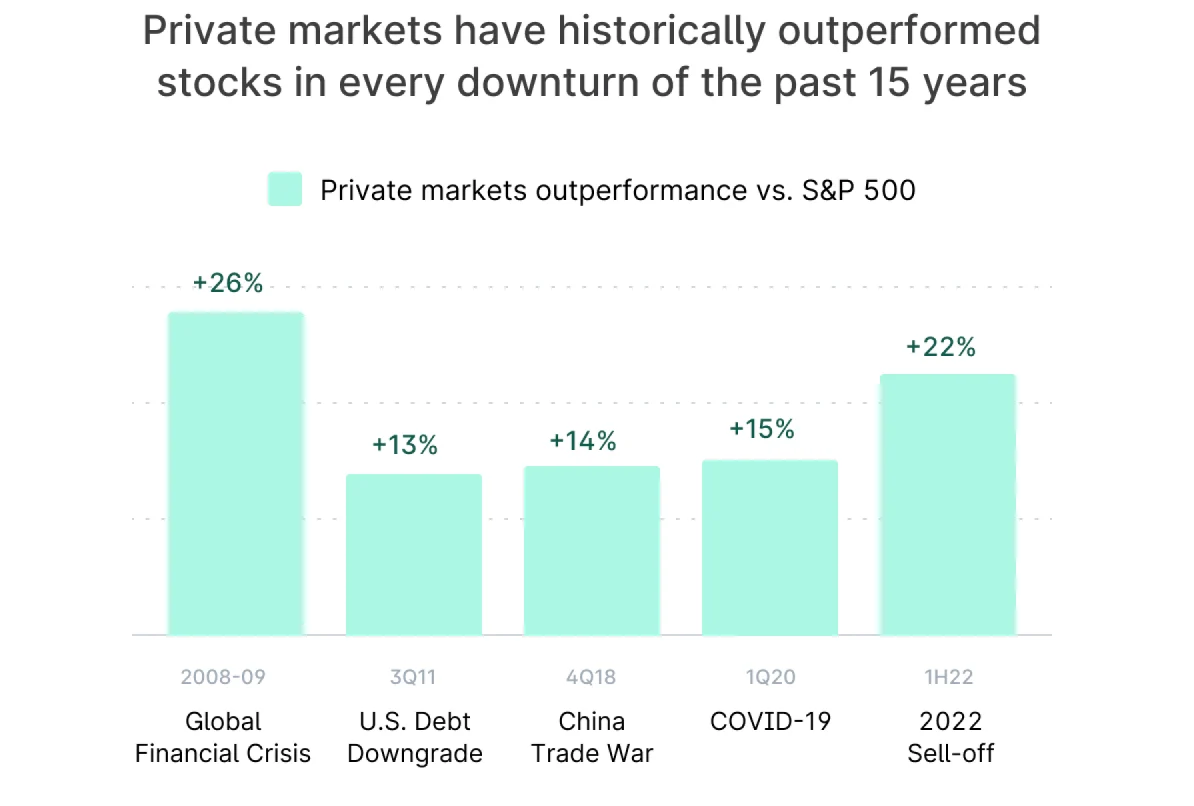
Focusing specifically on the real estate investments available on Yieldstreet, you’ll find a mix of REIT funds and private real estate deals, each with its own minimum and specifics:
How are the returns? As you can see from the chart below, Yieldstreet reports 9% net annualized returns for real estate — not bad. (P.S. Are you enticed by those art returns? Check out this article on how to invest in art.)

Yieldstreet also offers several portfolio products, letting you invest in multiple asset classes within a single investment. This gives you instant diversification across investments, and is a great way to hold alternative assets as part of a larger investment plan.
While many opportunities on Yieldstreet are reserved for accredited investors, anyone is welcome to invest in the Alternative Income Fund. With a minimum investment of $10k, you gain access to an impressive array of alternative assets:
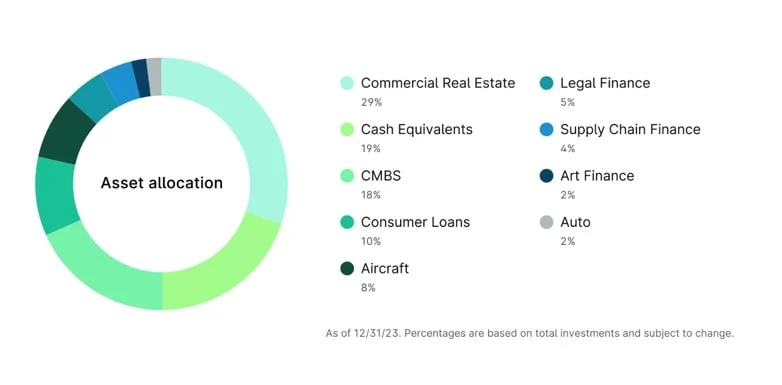
As of December 31, 2024, the Fund reports $147M+ of AUM across real estate, private and structured credit, and legal finance investments, to name a few.
Looking for an alternative with more options for non-accredited investors? Consider Fundrise. On this real estate investing platform, investors can invest in real estate without the hassle of buying and managing properties or dropping a huge down payment.
With their simple and user-friendly online platform, you can easily invest in a portfolio of high-quality real estate assets — as well as gain access to markets that are often considered the territory of private equity firms and hedge funds, such as private debt and pre-IPO companies.
More selling points: 1) It’s available to retail investors — no accreditation required. Plus, they’re transparent about client returns. If you go to their website and click on “Client Returns,” you can see client returns updated in real-time.
Required Reading: Fundrise Review: Can You Really Make Money?
2. Art
It’s not one of the most traditional investments out there … But art is another must-have on any list of alternative investments. That’s because art is a tangible asset with intrinsic value that can appreciate over time.
Investing in art allows investors to tap into the emotional and cultural value associated with artwork, which can often hold up well over time.
In the last two decades, you can see that all art tends to keep pace with the S&P 500 while contemporary art has outperformed both:
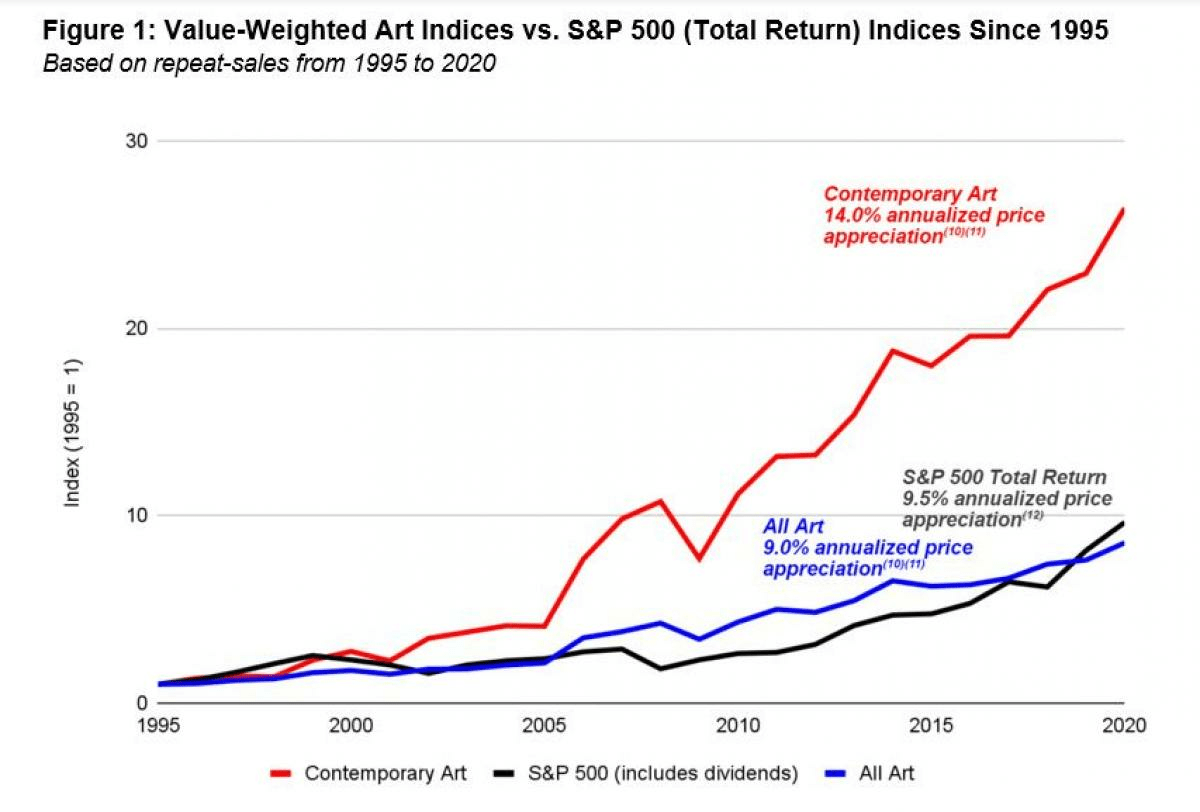
Of course, investing in art also comes with risks, like art market fluctuations and the costs associated with purchasing and storing artwork. Plus, you need to know a thing or two about art.
If you’re interested in using art as one of your alternative investment options, don’t immediately run out and buy a Bansky. Instead, investors can check out Masterworks, a platform that lets you buy fractional ownership in famous art pieces.
This way, you get access to some of the world’s most valuable and coveted artworks without having to drop a huge sum of money or worry about shipping and storage.
Masterworks also has a proven track record. It has already sold +$45mm in art, distributing the net proceeds to everyday investors.
While Masterworks is available to non-accredited investors, there is a waitlist. But as a WSZ reader, you can skip the waitlist here.
Want to learn how to invest in art? Check out this article.
3. Collectibles
“Collectibles” is an umbrella term that includes several types of alternative investments, such as:
- Cars
- Watches and jewelry
- Coins
- Wine and whiskey
- And more…
Those are just a few of the “collectibles” alternative investment examples out there. But it leads to the question: Why are collectibles one of the best alternative investment options? Here are two reasons:
- Collectibles have a low correlation with the stock market, so they can be a great way to diversify your portfolio and reduce overall risk.
- In contrast to more traditional assets, according to the Knight Frank Luxury Investment Index, collectibles beat inflation in 2022 and outperformed the majority of mainstream investment classes, including equities and even gold:
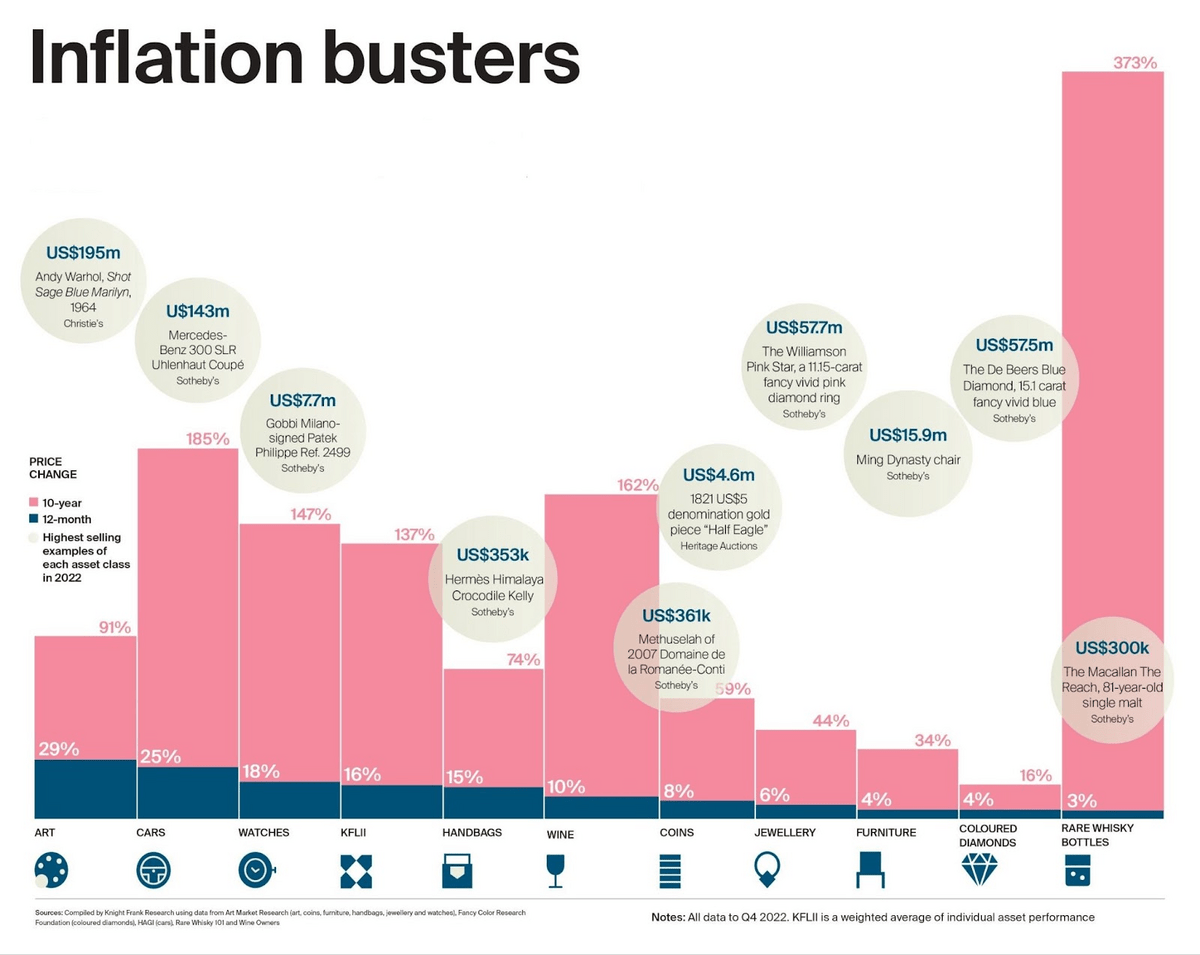
If you’re looking to add collectibles to your list of alternative investments, one platform that stands out in the space is Public.
Public is open to both accredited and non-accredited investors. It’s an alternative investment marketplace that offers a range of investment opportunities in various collectibles such as luxury handbags, comics, and even sports memorabilia.
By providing access to a diversified portfolio of collectibles, Public allows investors to spread their risk and potentially reap the rewards of a successful investment.
4. Private Companies
Investing in private companies is one of the most exciting alternative investment options out there. These companies are often at the forefront of innovation, with the potential for significant growth and returns.
However, it’s important to remember that investing in private companies comes with inherent risks, including the possibility of losing your entire investment. That’s why it’s crucial to do your due diligence and only invest what you can afford to lose.
But for those who are willing and able to take the risk, investing in private companies through platforms like Hiive can offer exciting potential rewards.
Hiive connects accredited investors interested in a stake in private and/or pre-IPO companies with employees, venture capital firms, or angel investors who want to sell shares.
Hiive is brimming with neat features — for instance, for those who are admitted onto the platform, there’s a live pricing chart for each company which includes prevailing bids and asks, and you can create watchlists and get notified about price changes or new listings offered.
Additionally, you have flexibility. Buyers can either accept the asking price as listed, place a bid, or negotiate directly with the sellers. As an added perk for investors, for standard transactions, the sellers are the only ones who pay fees.
Any views expressed here do not necessarily reflect the views of Hiive Markets Limited (“Hiive”) or any of its affiliates. This communication is for informational purposes only, and is not a recommendation, solicitation, or research report relating to any investment strategy or security. Investing in private securities is speculative, illiquid, and involves the risk of loss. Not all private companies will experience an IPO or other liquidity event; past performance does not guarantee future results. WallStreetZen is not affilated with Hiive and may be compensated for user activity resulting from readers clicking on Hiive affiliate links. Hiive Markets Limited, member FINRA/SIPC.
5. Venture Capital
Venture capital investing involves putting money into early-stage companies that have high potential for growth, but also a high risk of failure. But if the investment is successful, the returns can be astronomical.
According to Cambridge Associates, the top quartile of VC funds had an average annual return of 15% to 27% over the past 10 years, compared to the S&P 500’s 9.9% return per year the same ten years.
Yieldstreet offers opportunities to invest in venture capital projects through its platform, providing investors with access to a diversified portfolio of early-stage companies that have gone through a rigorous vetting process.
However, it’s important to keep in mind that these potentially high-yield alternative investments can be highly illiquid and should only be considered by those with a high risk tolerance.
Note: Most of Yieldstreet’s products, including their venture capital ones, are only available to accredited investors at this time. For more info, check out our Yieldstreet review.
6. Private Credit Blended Notes
Another one of the many alternative investments currently growing in popularity? Private credit blended notes, also known as direct lending funds.
These are private credit loans made to companies or individuals that aren’t publicly traded, and they’re often used to finance real estate development, buyouts, private debt, or other business activities .
With Percent, accredited investors can get exposure to multiple notes across different asset classes and geographies, all in a single investment.
So blended notes can be attractive investment products for fixed-income investors looking to instantly diversify beyond bonds.
However, it’s worth noting that investing in private credit blended notes does come with some risks, such as credit and liquidity risks. So investors need to carefully evaluate the underlying borrowers and the terms of the notes before investing.
7. Farmland
Billionaire investors like Bill Gates and Bill Malone invest in farmland for a reason: it’s a relatively untapped investment opportunity that can provide a unique diversification to your portfolio.
Plus, investing in farmland can have a positive impact on society by supporting sustainable agriculture and contributing to the production of essential crops.
But how do you invest in farmland without dropping major money on pristine acreage? Luckily, platforms like AcreTrader let accredited investors easily invest in farmland properties across the United States.
By investing in farmland through AcreTrader, investors can access a variety of farm types and locations, with the added benefit of professional management and expertise.
Want to know more? Check out our AcreTrader review.
8. Cryptocurrency
Cryptocurrency has been a hot topic in the investment world in recent years.
Investors considering crypto among their alternative investment options should know that it’s a highly volatile investment, and the market can be unpredictable. Just look at Bitcoin, which once soared over $60K but trades closer to $28,000 today.
Despite the risks, many investors are still drawn to the potential for high returns in the cryptocurrency market. One option for investing in cryptocurrency?
Bitcoin IRA, which allows you to buy and hold Bitcoin and other cryptocurrencies in a tax-advantaged retirement account.
But as with all alternative investment products, make sure to do your due diligence before investing in this asset class.
If you don’t care about holding your crypto in an IRA, another solid choice is eToro, a social trading platform that allows investors to buy, sell, and trade cryptocurrencies.
9. P2P Lending
The idea behind peer-to-peer (P2P) lending is simple. Instead of going through traditional financial institutions, borrowers can get loans directly from investors through P2P lending platforms.
As an investor, you earn interest in return for borrowers getting access to loans at lower interest rates than they would through traditional channels.
It may sound risky, but typically investors can choose which loans they want to invest in, based on the borrower’s credit score, the loan amount, and the purpose of the loan.
LendingClub is a well-known P2P lending platform that connects borrowers with investors.
- Since its inception in 2007, LendingClub has facilitated over $68 billion in loans and has over 3 million customers.
- According to LendingClub, their investors have historically earned returns of between 3% and 8% per year.
With yields like that, P2P Lending is one of the best high-yield alternative investments.
Of course, there’s still some risk of default, so do your research and carefully consider your investment options before doing any P2P lending.
10. Precious Metals
Precious metals are considered a safe haven for investors during times of economic uncertainty. The metals tend to hold their value well during inflationary periods and can also act as a hedge against geopolitical risks, making them a popular alternative investment option.
The chart below shows the long-term return of gold vs. S&P 500:
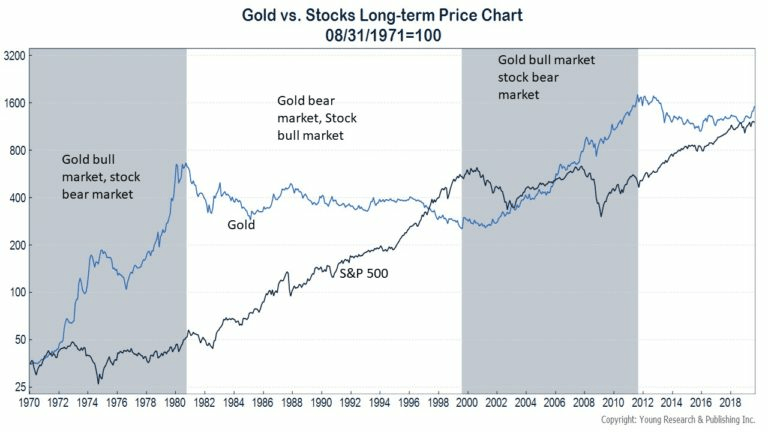
You’ll see that bear markets in equities were often bull markets for the price of gold. This is another advantage to precious metals: they can be uncorrelated with the broader stock market.
Investors can gain exposure to these alternative investment products through exchange-traded funds (ETFs) such as the SPDR Gold Shares (GLD) and the iShares Silver Trust (SLV), as well as through physical holdings of bullion or coins.
You can even hold precious metals in an IRA for extra tax savings.
Check out our top gold IRAs:
Want to learn more about precious metals investing? Learn more:
11. Commodities
Commodities is an umbrella term that includes materials like:
- Lumber
- Coal and uranium
- Wheat and oats
- Copper and aluminum
- Oil and gas
- And much more
The basic value proposition for commodities is that while they’ve been on the rise lately, they’re still very cheap historically when compared to stocks:
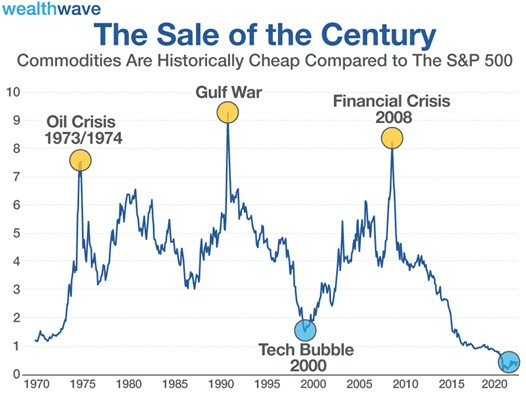
Plus, with oil giants like Shell (NYSE: SHEL) yielding 4+% or copper kings like Southern Copper (NYSE: SCCO) yielding 5+%, commodities are also one of the best high-yield alternative investments.
Investors can choose from individual companies like the above, commodity-specific ETFs, or keep it simple with a broad natural resources ETF like GNR, the S&P Global Natural Resources ETF:
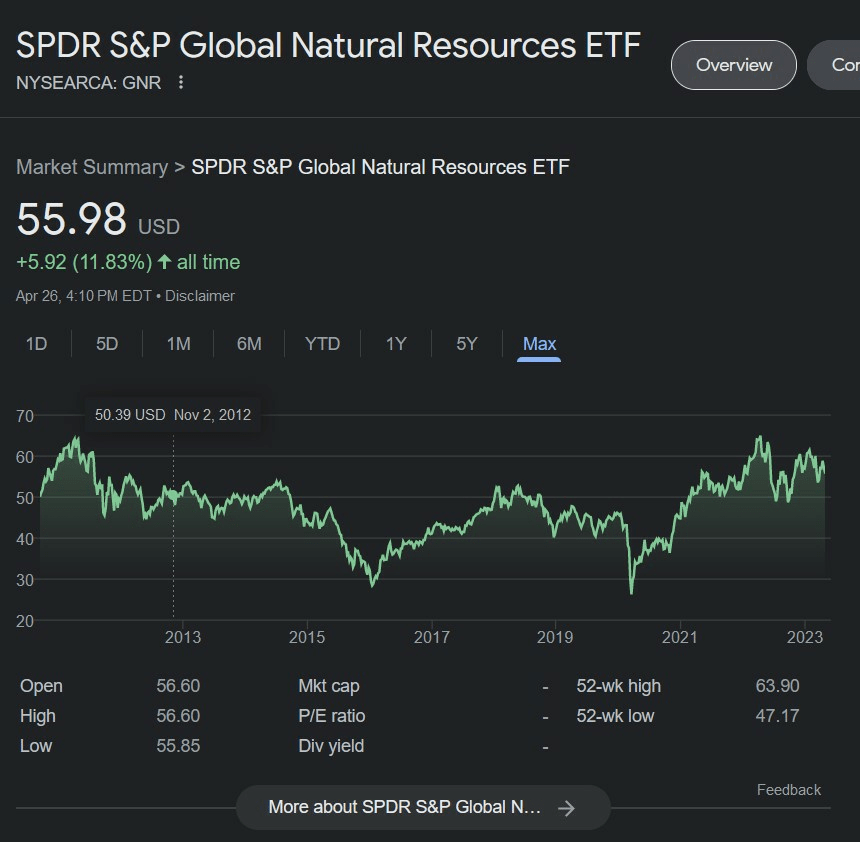
The best brokerage for commodities ETFs
There are a lot of great brokerages out there for trading ETFs.
Our favorite? eToro.
It combines the speed and ease of speed of modern brokers like Robinhood and Webull with the reputation, stability, and security of brokers like Fidelity and TD Ameritrade.
Plus, eToro is a social trading platform, so you can communicate, learn, and invest alongside other like-minded investors.
eToro is a multi-asset investment platform. The value of your investments may go up or down. Your capital is at risk.
Bottom Line: Alternative Investments
When it comes to investing, diversification is key to minimizing risk and maximizing returns in your investment portfolio, so it’s worth considering alternative investments in addition to a mix of traditional investments such as stocks, bonds, and mutual funds. You may not have direct access to, say, private equity investments, but alternative investments provide unique opportunities to diversify your portfolios and potentially earn high returns. (More on this in the benefits of alternative investments.)
Real estate, art, collectibles, private companies, venture capital, and private credit blended notes are some of the best alternative investments to consider. Just remember these “non traditional investments” / alternative assets also come with inherent risks, such as illiquidity and fluctuations in value that may differ from traditional investments.
Before investing, it’s crucial to do your due diligence, understand the risks involved, and only invest what you can afford to lose.
To minimize risk, stick to trusted platforms like:
- Fundrise (real estate)
- Masterworks (art)
- Public (collectibles)
These platforms make it easier for investors to access the best alternative investments without requiring a ton of money to get started.
FAQs:
What is the most popular alternative investment?
The popularity of any financial asset can vary based on factors such as market conditions, investor preferences, and regulations. However, according to NORC at the University of Chicago, more than one in ten Americans surveyed invest in cryptocurrencies, making cryptocurrency one of the most popular alternative investments.
What are 4 examples of alternative investments?
Four examples of alternative investments include real estate, precious metals, art, and venture capital.
What should I invest in instead of cash?
Instead of cash, consider investing in other low-risk options that pay a yield, like savings accounts, money market funds, or short-term bond funds.
What is the safest most profitable investment?
There is no guaranteed safest and most profitable investment, as all investments come with some degree of risk. However, diversified portfolios with a mix of stocks, bonds, cash, and some of the best alternative investments can potentially offer a balance of safety and profitability.
Where to Invest $1,000 Right Now?
Did you know that stocks rated as "Buy" by the Top Analysts in WallStreetZen's database beat the S&P500 by 98.4% last year?
Our July report reveals the 3 "Strong Buy" stocks that market-beating analysts predict will outperform over the next year.
